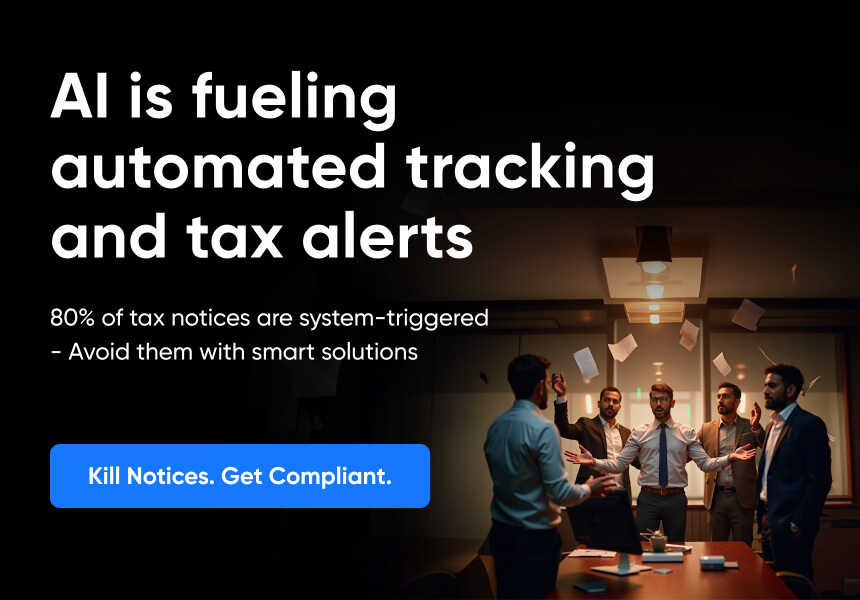POPULAR ARTICLES
- Bill of Exchange: Meaning, Format, Types, Features & Examples
- What is Channel Financing: Meaning, Benefits, How It Works & Examples
- Key Difference Between Factoring and Forfaiting
- Supplier Reconciliation: Process, Format, and Best Practices
- Host to Host (H2H) Payment Systems
- Factoring vs Reverse Factoring - Which Benefits Vendors
- Bill Discounting vs Bill Negotiation: Key Differences Explained
- Invoice Discounting Investment in India: Returns, Risks, Benefits & How to Start
- Different sources of working capital financing
- Vendor Onboarding in Indian Businesses: A Complete Guide
- What is Dynamic Discounting? Process, Examples, Pros & Cons Explained
- Invoice Discounting vs Factoring: Key Differences & Uses Explained
- What are Fixed and Floating Charges: Examples and FAQs
- How to account for invoice discounting
RELATED ARTICLES
- What is Accounts Payable - Meaning, Process, Examples, Formula
- Accounts Payable Journal Entry: Types & Examples
- SAP Tcodes for Accounts Payable: SAP Transaction Codes List for Accounts Payable
- Accrued Income Journal Entry: Meaning, Importance, and Examples
- What is Procure to Pay (P2P)? Process, Cycle, Benefits, Best Practices
- What is Bill Discounting: Meaning, Rebate, Types, Process & Examples
- 2-Way & 3-Way Matching in Accounts Payable Explained
- Letter of Credit (LC) Discounting: Process, Interest Rates & Example
- What is TReDS? Meaning, Full Form, Registration, Platforms & MSME Benefits
Early Payment Discount: Invoice Discounting Benefits Explained
Working capital is one of the crucial aspects of running a business. A business usually offers a prepayment discount to its customers to obtain receipts earlier than the expected due date. Alternatively, the business can discount its unpaid invoices to the bank or NBFC for quick cash flow. This article will highlight how early payment discounts and invoice discounting are important for businesses, especially MSMEs, which suffer from repetitive overdues.
Alongside the Trade Receivables Discounting System (TReDS—an initiative from the Indian Government), the MSMEs and large corporations can also use the invoice discounting platform provided by Clear.
What is an Early Payment Discount?
An early or prompt payment discount is given by the seller to its buyer for initiating payment within the credit period. The discount is calculated as a percentage of the invoice. For example, a supplier provides a 1% discount when the payment is received within 10 days from the invoice date.
A supplier may also have a flexible discount percentage based on payment days. For example, a 1% discount for payment received before 10 days, while 0.5% discount for payment received after 10 days but before 30 days. Post 30 days, no discount shall be given.
Invoice Discounting Explained
Invoice discounting is a type of financing provided by banks or NBFCs to businesses in exchange for outstanding invoices as collateral. This financing helps the business release funds locked in unpaid invoices belonging to reputed corporates and government bodies. The loan is repaid from funds obtained from these outstanding debtors.
Invoice discounting is different from bill factoring. In bill factoring, the company sells its outstanding invoice to the banks, after which the banks are responsible for collection. In invoice discounting, the company retains control over communication and collection from the buyers.
For example, a company has around Rs.10 crores of outstanding invoices and decides on invoice discounting. The bank will analyse the list of outstanding invoices and debtors’ profiles, upon which it will decide a percentage of outstanding invoices and remit it to the company.
Benefits of Early Payment Discount via Invoice Discounting
- Effective working capital management: Early payment discounts coupled with invoice discounting improve and ensure consistent cash inflow for the business, thereby improving working capital management.
- Prompt payment to vendors: With improved working capital management, a business can take advantage of early discounts offered by its suppliers. This reduces the company's cost and improves its relationship with suppliers. This ensures that the business receives a consistent supply of goods and services from its vendors.
- Less reliance on other sources of finance: Invoice discounting is a form of flexible financing, unlike traditional high-interest bank loans. There are no predefined limits, and funding is directly linked to the value of outstanding invoices. This helps the business meet its short-term liquidity without taking any long-term loans, which require collateral as well.
- Growth Expansion: A business may invest in other growth opportunities due to early access to funds stuck in outstanding invoices for the company.


